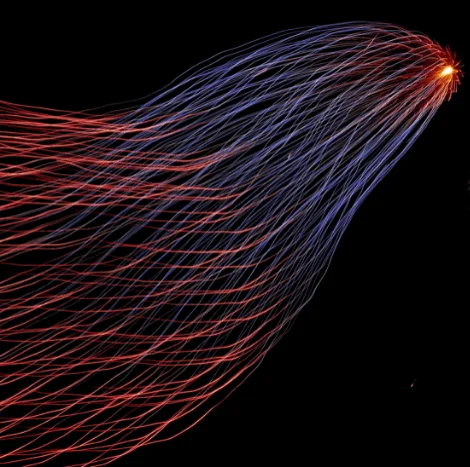AI technology has become one of the most important technological developments of the 21st century, this much is clear. In 2023, as AI software such as ChatGPT passed more than 100 million active users, professionals everywhere have begun to consider what this might mean for their own operations.
For PR professionals, there has been clear enthusiasm around this new technology, with a PR week survey in 2023 finding that almost 50% of PR professionals had already integrated it into their workflows. However, AI implementation remains a deeply controversial topic for both professionals and clients, with reports last year finding that despite such enthusiasm, almost 43% of PR professionals still felt uncertain about its application.
In 2024, successful PR companies will be increasingly defined by their ability to navigate the benefits and caveats of this new form of technology in pursuit of better business outcomes. AI cannot be a substitute for the creativity of human PR professionals, but the most effective agencies will be the ones that recognise the potential of AI as a tool to support existing professionals.
Personalising campaigns: The efficiency of AI implementation
Text based AI such as ChatGPT can research a client’s industry and potential audience in advance, identify key outlets and trends that inform the current intellectual debate. PR teams can use such information to craft more personalised and proactive PR campaigns for their clients. For instance, AI tools can predict the effectiveness of campaigns in advance, allowing PR agencies to remove inefficiencies in their campaigns in advance, effectively leading to much stronger returns.
Crafting these more successful initial campaigns contribute to much better relationships between clients and PR teams, allowing PR experts to significantly enhance their client service.
☘

The pursuit of creativity
An underestimated benefit of AI implementation is its ability to allow PR professionals to find more creative approaches to their own workload. PR professionals are ultimately limited by their own restricted knowledge and biases, which may limit their approaches to tasks and lead to formulaic approaches.
Generative tools such as Midjourney or Descript, allow PR-ists who are inexperienced with graphic design to easily implement visual content into campaigns. This means that PR professionals can find more unique ways to communicate information and carry out their services that they would not be capable of otherwise, which helps maintain a competitive advantage over other PR agencies.
Streamlining administration
One of the critical benefits of the rise of AI is how it enables PR professionals to streamline their workflow by handling time-consuming administrative tasks that employees used to have to do themselves.
As AI technology continues to develop, they become much more effective at drafting initial versions of press releases, collating data and even carrying out email campaigns, serving as a convenient way of supporting the work of PR executives. Tasks such as reputation management and sentiment analysis are crucial to any robust PR campaign, but they are time consuming and difficult to monitor effectively. By contrast, AI software can collate and present this data much more efficiently allowing workers to focus on interpreting and acting on this data.
Consequently, it is of little wonder why over 65% of PR professionals surveyed by the World Economic Forum concluded that AI will further improve data analysis. In taking responsibility for administrative task, AI implementation can contribute to a much more effective and competitive PR sector.
Cautions when using AI
Advancing AI technology has undeniable advantages for the PR sector, from helping with producing of content for social media campaigns to directly and positively impacting B2B lead generation efforts, but it must also be recognised that it is still a deeply controversial new form of technology, that must be applied sensitively.
Ai in PR podcast with Stella Bayles & Adam Hirsch
Further AI implementation must navigate both operational and ethical questions that prevent it being widely adopted. If PR agencies are hoping to implement this new technology, it is thus crucial that further AI integration is part of a holistic and transparent business strategy.

Clients and perceptions of AI
Rapidly developing forms of technology promote unique ethical concerns, both for users and clients that agencies must be aware of.
The line between AI and human created content, has begun to blur leading to ethical questions about the impact of these writing tools and the displacement of the creatives operating in this industy. Employing AI without making clients fully aware of the fact can also lead to accusations of unprofessionalism and ultimately damage business relations, or lead to execs loosing their jobs for bad decisions.
Consequently, it is essential that all PR experts remain transparent in their usage of AI. To this end, leading regulatory bodies such as the PR council have stressed that all PR executives should make clear when AI has been implemented as part of their business strategy. In dealing with clients, professionals should make clear that AI is only being used as a supplementary tool, in order to maintain their trust.
PR in the Age of AI podcast with Andrew Bruce Smith
Bias and fairness in AI implementation
Despite a tendency to see AI technology as “value-free” in that it lacks the biases of human professionals, it must be recognised that for this same reason, AI also lacks the ability to scrutinize its own results.
Consequently, AI trained on biased technology will, in turn, produce biased or even discriminatory results that can negatively impact clients. For instance, AI powered analysis of media coverage may overlook or favour certain demographics over others, due to population size or media presence, leading to unequal representation within the data set.
To deal with this, PR professionals must critically analyse and scrutinize AI produced data, to identify any potential biases in advance. AI is not a flawless technology, and becoming complacent in its implementation will harm diverse representation for clients and customers alike.

AI as a challenge to privacy
Public relations today relies heavily on data collection and analytics, but this must be done in accordance with strict regulations and limits. Data collection must be transparent certainly but above all else it must be secure to ensure that customers can trust this data is handled correctly. For instance, in the United States policies such as the California Consumer Privacy act requires businesses inform consumers about the collection of the data, and it is policies such as this that PR agencies must demonstrate awareness of. GDPR in EU is another set of regulations that the PR and marketing industry needs to be aware of. And, in the case of the healthcare industry, there are numerous regulations specific to each country or economic area.
The advent of AI powered platforms such as ChatGPT or internet scraping tools means that personal data can be collected from an individual without their explicit consent. As AI tools become more and more advanced, this type of access to personal data becomes far easier to achieve, which many people will view as a drastic invasion of privacy. This can lead to operational and reputational damage for PR professionals and their clients.
Such ethical challenges prevent AI technology from being a one-size-fits-all solution or a replacement for the work of traditional PR professionals. Indeed, the scrutiny and expertise of PR professionals is essential in ensuring AI implementation remains ethical and moral as we move into 2024.
Employees and the perception of AI:
Equally, it is crucial that employees are well educated on the usages and pitfalls of a greater reliance on AI. According to the Chartered Institute survey, as little as 30% of PR professionals described themselves as familiar and comfortable with AI technology, demonstrating that education surrounding the technology is still extremely limited.
This lack of education can shape negative perceptions from public relations professionals themselves, who may fear the technology is trying to replace them. To alleviate this, managers must take an active role in the education of their staff through tutorials, courses, and onboarding of their team. Proper support and education will be essential to ensure PR professionals can make the most of the rise of AI in their industry.
☘
AI is still a developing technology
Crucially, despite the rise of AI, it must be recognised that it is a still developing technology with real limitations on its effectiveness and operations that prevents wide implementation of this new technology.
As a relatively novel form of technology, expertise, and awareness of the complexities of AI technology is currently limited. Models and algorithms need to be adjusted constantly to retain purpose in a changing market, which requires extensive investment in both employees and new technology. Many smaller businesses thus struggle to implement new AI software in an effective way, due to a lack of necessary budget. Indeed, it is thus unsurprising that a recent survey revealed that half of UK businesses with less than 500 employees are unprepared for the potential reputational crisis caused by ineffective AI.
Such limitations must be recognised by any PR agency or professional looking to implement AI as part of their workstreams in 2024. Ai is an incredibly useful tool, but it must be applied as part of a wider strategy, with awareness of its limitations to be truly effective.
Looking forward: The future of AI and PR in 2024
AI technologies have grown dramatically in the last year, and in 2024 this seems unlikely to change. For sectors such as PR and marketing, it’s value is undeniable, serving to improve many agencies capacity for effective, efficient, and personalised work and redefining their capacity for action.
However, AI has yet to reach the level of experts and it faces challenges of ethics and effectiveness that limits its capacity for wider implementation. For this reason, AI will never be able to fully replace the value of creative human employees, but sensitively applied AI can be an invaluable supplement for the work of PR specialists everywhere.

“What AI can currently do is summarise the data: whether that is an Excel spreadsheet, or the national media. This, of course, has its uses. But what it cannot do – for now – is change the conversation; that, as PR professionals, is up to us.”
– Richard Morgan Evans, CEO of Sapience communications
The crucial issue for the PR sector moving into 2024 then, will be how ready they are to embrace the potential of AI and human collaboration in pursuit of stronger business outcomes.




